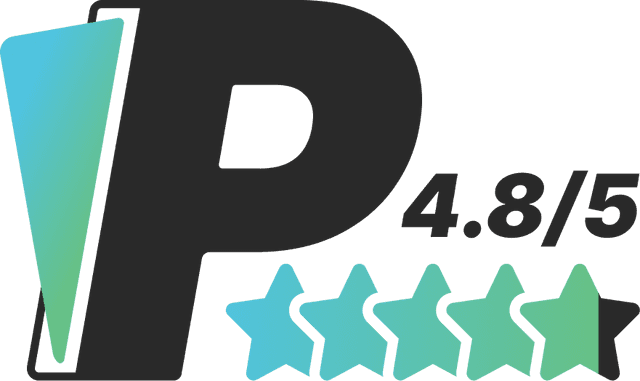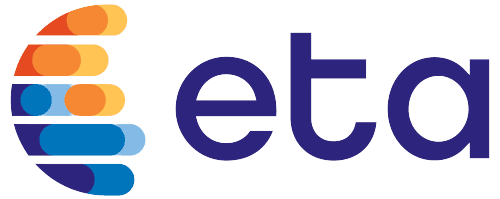As a business owner, you know that securing funding can be challenging. Banks and merchant vendors often have stringent criteria for loans or merchant cash advances, and the competition from new startups can spread available resources thin. On top of these sizable obstacles, high-risk business owners face even more challenging circumstances.
Most credit unions and traditional lenders refuse to work with high-risk types of businesses, making it extremely difficult for owners in high-risk industries to secure business loans. Even when a high-risk business owner does find an alternative lender, it is rare for them to be given favorable rates or flexible repayment terms.
Fortunately, affordable and advantageous options are available if you are a high-risk business owner needing a loan. But before diving in, let's talk more about high-risk business loans, who needs them, and how to qualify.
What Is a High-Risk Business Loan?
High-risk business loans are financial products designed for businesses that may not qualify for traditional financing due to perceived risks. These risks could stem from various factors such as industry volatility, financial instability, poor past financial decisions, or even poor personal borrowing history. Lenders offering these loans often charge higher interest rates to compensate for the increased risk.
What Do Lenders Consider "High-Risk?"
Lenders assess several factors to determine if a business is high-risk. The type of industry plays a significant role; certain industries, such as gambling, adult entertainment, or cannabis, are deemed high-risk due to legal and regulatory uncertainties.
Additionally, a poor credit history or lack of credit can categorize a business as high-risk, making it harder to secure traditional loans. Another crucial factor is revenue consistency. Types of businesses with fluctuating or seasonal income streams often appear unstable to lenders. Finally, the tenure of the business matters—new businesses or startups usually lack the financial history lenders use to assess risk.
Startups and New Businesses
Startups and new businesses frequently fall into the high-risk category due to their limited operational history. Without a track record, lenders find it challenging to predict the business's potential for success. However, high-risk loans can provide the necessary capital to help these businesses grow and establish themselves, bridging the gap until they can qualify for traditional financing.
Businesses with Inconsistent Revenue
Businesses with inconsistent revenue face challenges securing traditional loans from financial institutions with strict revenue requirements. For instance, seasonal businesses or those affected by market trends often experience significant revenue swings.
High-risk loans offer these businesses a lifeline by providing business funds during low-revenue periods, helping maintain financial stability. This type of financing allows these businesses to manage cash flow effectively and maintain operations during off-peak times.
Businesses with Poor Credit
A poor business or personal credit score can be a significant hurdle when seeking financing. Fortunately, high-risk business loans are accessible to those with less-than-perfect credit, allowing them to get the funding they need while working to improve their credit standing over time. These loans often come with higher interest rates, but they allow businesses to rebuild their credit and prove their financial reliability.
Merchant accounts and other services can also be difficult to find for businesses with bad credit. If you or your business have poor credit, high-risk merchant services from Zen Payments can help. With an acceptance rate of 98%, we help merchants establish a solid financial base for their business.
High-Risk Businesses
Certain industries, like adult entertainment, firearms sales, and online gaming, are labeled as high-risk. These types of businesses face stricter regulations and higher scrutiny, making it difficult to secure traditional loans. High-risk business loans cater specifically to these industries, offering specialized financial solutions that address their unique challenges.
Is My Business a High-Risk Borrower?
Understanding whether you fall into the high-risk category before seeking a loan is crucial. Start by reviewing your credit score to identify any issues that might categorize you as high-risk. Next, evaluate your business’s financial history, including revenue patterns and industry stability.
Researching if your industry is generally considered high-risk by lenders can also provide valuable insights. Being aware of these factors can help you better prepare for the loan application process and increase your chances of approval.
High-Risk Loan Benefits
High-risk loans come with several advantages. If your business qualifies for a high-risk loan, here are a few ways benefits you can receive:
- Accessibility: When traditional financial institutions refuse to provide funding, high-risk lenders save the day. High-risk loans are accessible to businesses that might not qualify for traditional loans, providing a vital funding source when other options are limited.
- Fast approval time: The approval process for high-risk loans is often quicker than that of their traditional counterparts, allowing for faster access to funds when immediate financial support is needed.
- Flexibility: Unlike loans from traditional banks, these loans may offer more flexible terms tailored to the unique needs of high-risk businesses, making them a better option for those facing financial challenges.
Loan Options for High-Risk Businesses
When considering a high-risk business loan, several options might suit your needs.
1. Merchant Cash Advances: Merchant cash advances (MCA) provide businesses with a lump sum of capital in exchange for a percentage of future sales. This type of financing is particularly attractive to high-risk businesses due to its flexibility and ease of access. Here are a few additional benefits of this option:
- Immediate funding: Businesses receive funds quickly, which can be crucial for addressing immediate financial needs.
- No collateral required: Unlike traditional loans, MCAs do not require the business to pledge assets as collateral.
- Flexible repayment: Repayments are based on a percentage of daily credit card sales, making them more manageable during periods of fluctuating revenue.
2. Invoice Financing: Invoice financing allows businesses to leverage their outstanding invoices to obtain cash advances. This helps manage cash flow by converting accounts receivable into immediate working capital. Invoice financing can also provide the following advantages:
- Improved cash flow: Businesses can access funds tied up in unpaid invoices, allowing more financial flexibility.
- No debt accumulation: Since it’s an advance on money already owed to the business, invoice financing doesn’t add to the debt burden.
- Quick access to funds: Approval and funding processes for invoice financing are typically faster than traditional loans, providing quicker access to capital.
3. Short-term loans: Short-term loans are designed to provide quick funding with shorter repayment periods, usually ranging from a few months to a year. These loans are ideal for businesses needing immediate financial support for urgent expenses. Some other advantages of these loans include the following:
- Fast funding: Short-term loans are often processed and disbursed more quickly than long-term loans.
- Flexibility: These loans can be used for various business needs, from covering temporary cash flow gaps to funding unexpected expenses.
- Manageable terms: Although the repayment period for these loans is shorter, the terms are often designed to be manageable for the business’s financial situation.
4. Equipment financing: Equipment financing provides businesses with the funds needed to purchase essential equipment. This type of loan is secured by the equipment itself, making it a practical option for high-risk businesses investing in machinery, technology, or other tools. Here are a few additional benefits of this option:
- Preservation of cash reserves: Businesses can acquire necessary equipment without depleting their cash reserves.
- Equipment collateral: The equipment is collateral, making it easier to obtain financing, even for high-risk businesses.
- Potential tax benefits: Payments on equipment financing may be tax-deductible, offering potential savings for the business.
High-Risk Business Loan Alternatives
While high-risk business loans are a viable option for many businesses, there are alternative financing solutions that may be more suitable depending on the situation:
- Crowdfunding: Platforms like Kickstarter and Indiegogo allow businesses to raise funds from the public. This can be an effective way to secure capital without taking on debt.
- Angel investors and venture capital: For startups with high growth potential, angel investors and venture capital firms can provide significant funding in exchange for equity.
- Grants and government programs: Various grants and government-backed programs offer funding to businesses that meet certain criteria. These can be particularly beneficial for businesses in specific industries or those with innovative products.
How Can My Business Qualify for a High-Risk Loan?
To qualify for a high-risk business loan, you typically need to provide a detailed business plan demonstrating how the funds will be used. Recent financial statements showing revenue, expenses, and profitability are also crucial in the application process.
Lenders will review personal and business credit histories to assess the level of risk. Additionally, some lenders may require collateral to secure the loan, providing them with a safety net in case of default. Preparing these documents can significantly enhance your chances of securing a high-risk loan.
Interest Rates on High-Risk Loans
Before applying for high-risk business loans, it's important to understand their interest rates. These loans often come with higher interest rates compared to traditional loans. This is because lenders need to compensate for the increased risk associated with lending to businesses that might not have a strong financial track record.
These interest rates can significantly impact the overall cost of the loan and the business’s cash flow. Business owners need to understand how these rates are calculated and what factors might influence them, such as credit score, industry risk, and the loan term.
Collateral and High-Risk Loans
Additionally, business owners should understand the role collateral can play in securing a high-risk loan. Lenders may require business owners to pledge assets such as property, equipment, or inventory to reduce risk. This collateral can provide a safety net for the lender and may result in more favorable loan terms for the borrower.
However, it also means that the business owner must be prepared to lose these assets if they default on the loan. Understanding the implications of collateral can help business owners make informed decisions about their financing options.
Managing Debt and Improving Credit
When applying for a high-risk loan, businesses need to do what they can to manage debt effectively and improve credit scores. These actions are helpful in the application process and essential for future financial stability.
This involves making timely loan repayments, reducing unnecessary expenses, and maintaining accurate financial records. Additionally, businesses can improve their credit score by addressing any issues on their credit report, maintaining low credit balances, and establishing a history of timely payments. Improved credit scores can lead to better loan terms and lower interest rates in the future.
How Zen Payments Can Help
Unfortunately, the financing and merchant service world is discriminatory against high-risk industries. That's why at Zen Payments, we strive to provide high-risk merchants with the services they need to grow their businesses. With over 15 years in the industry, we specialize in providing merchant services tailored to high-risk businesses.
Zen Payments offers more than just merchant services; it provides tools and resources to help high-risk businesses build a strong financial foundation. This includes educational resources, personalized financial advice, and access to a network of financial experts. By leveraging Zen Payments’ expertise, businesses can improve their financial health, making them more attractive to lenders and better prepared for future financial opportunities.
Our team wants to help you succeed, so invest in your business today with Zen Payments!






